"We're passionate about standing up for all women" says Derbyshire Doula - and why they aren’t just for the wealthy like Meghan
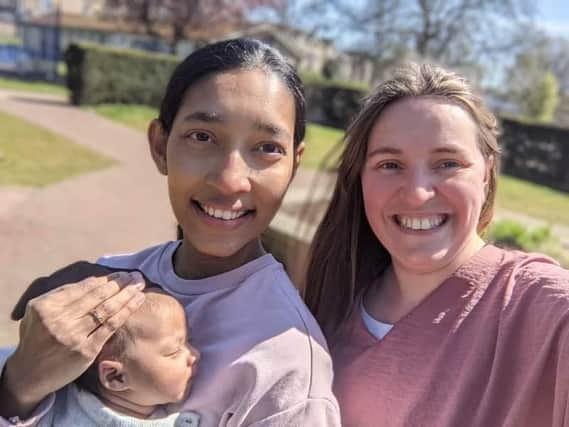

The word ‘doula’ derives from ancient Greek meaning ‘woman’s servant’.
But, since the 1970s, it has been used to describe a non-medical professional who is trained to provide both emotional and physical support for soon-to-be parents: to guide them through pregnancy, prepare them for birth, and help them through the first few days or weeks with their new baby.
Advertisement
Hide AdAdvertisement
Hide AdImogen Zybert launched Derbyshire Doula in 2019, spurred on by her own struggles with Post-traumatic stress disorder (PTSD) and Postnatal depression (PND) following the birth of her youngest daughter.
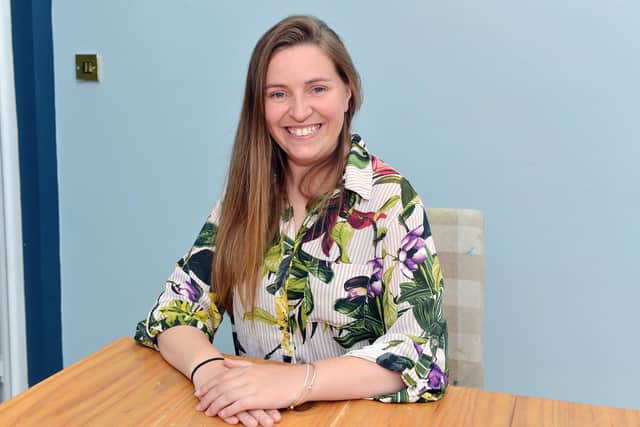

She was later joined by Katie Cadman, who also battled mental illness during her first pregnancy, and the pair now work as trained doulas to support families across the county and beyond.
Imogen said: “We are a working team who has similar goals of bridging the gap in mental health and dispersing stereotypes.
"Before Katie joined I had finished my perinatal recovery under Chesterfield hospital and was looking to give something back. I began setting up a local support group and opened up my house to those in need.
Advertisement
Hide AdAdvertisement
Hide Ad"I felt the desire to build a business around my experience with my daughter and she became the inspiration behind Derbyshire Doula and the driving force behind what I do. A year later Katie joined the team, she also had experienced her own mental health issues with her first child.
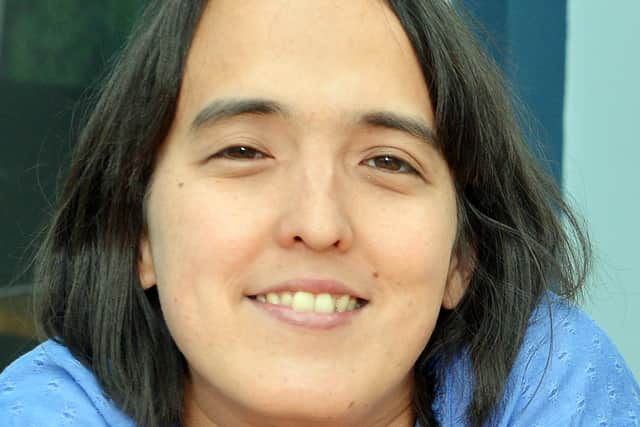

"She recognised that there was a lack of support that was on offer and changed her career to bridge that gap. Since then, Derbyshire Doula has kept on growing, supporting women across the UK, winning awards for our work and providing mental health support within several organisations.”
The pair work to support women and their families through the prenatal and postnatal period, holding their hands – both physically and metaphorically – through the biggest transition of their lives.
Over the past decade, a whos-who of A-list mothers including Heidi Klum, Jessica Alba, Anne Hathaway, Kate Hudson and Nicole Kidman have all worked with doulas and ethused about the difference their support made.
Advertisement
Hide AdAdvertisement
Hide AdMeghan Markle also reportedly became the first royal to work with a doula when baby Archie was born in 2019.
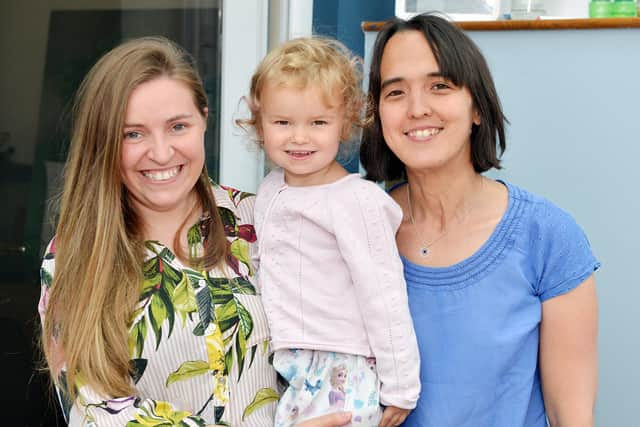

All these celebrity endorsements will have undoubtedly helped increase the awareness of doulas worldwide, but the concept is far from new.
In fact, throughout ancient history most women had their own version of a doula – women, usually those who had already had children, who would support other women in their village or community in labour.
Their role can range from being an advocate for a mum in labour to mentally preparing the dads for their journey into fatherhood and lightening the load postnatally regarding light household duties – but both Imogen and Katie view it as “rewarding, empowering, humbling and privileged.”
Advertisement
Hide AdAdvertisement
Hide AdGiving birth is not always plain sailing, however, and the pair say that one of the main issues they find is that women are not being prepared for when the unexpected happens.
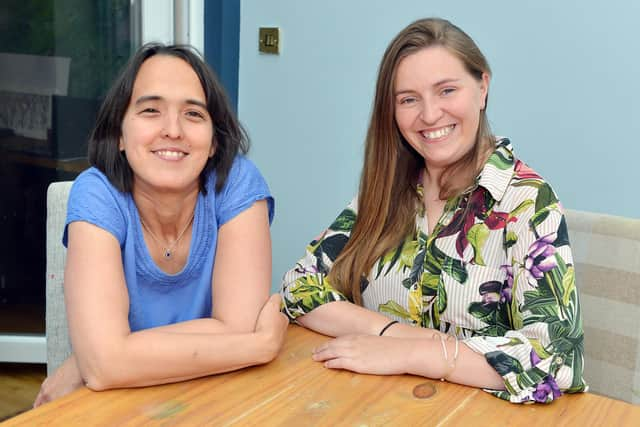

Katie said: "When pregnant, it is common practice for mums to come up with a birth plan but not much is said about what if the birth doesn’t go the way it says on that piece of paper.
"This can be the foundation or trigger for women experiencing trauma as, to them, it is a sense of losing control over the situation.
"This can have an impact on the mum or even dad’s mental health. Therefore it is so important to plan for if things go wrong or something unexpected happens in the pregnancy.”
Advertisement
Hide AdAdvertisement
Hide AdImogen added: "In the sessions we have with our mums before birth we talk about the ‘what ifs’ and cover topics such as caesareans, places where you can give birth, pain relief options.
"Some mums come to us wanting a planned caesarean birth, something that is well within their legal birth right. However, the majority of mums are faced with the stigma of a caesarean birth choice with statistics showing that only 26 per cent of Trusts offer caesareans in line with NICE best-practice guidance.”
“Isolation plays a role in how prepared people are as we notice a difference in experiences from those who live in remote rural areas of Derbyshire to those who live in bigger towns and cities. This could be down to the fact that in the latter you are in a bigger community so more likely to have better access to more mum groups.
“Regardless all mums should know their legal rights in pregnancy.”
Advertisement
Hide AdAdvertisement
Hide AdAcross the pond, doulas are far ahead in terms of prevalence and availability when compared to the UK, perhaps fuelling the perception that they are a ‘private luxury’ only available to celebrities or those with enough cash to spare.
But, Imogen says this stems from a lack of understanding of the cost breakdown for hiring a doula – and that anyone, from any background, can benefit from their support.
“With regards to a birth we are exclusive to the family for weeks prior to and weeks after the birth,” she said. “Within this period which can last up to four weeks, we do not drink, don’t take on new clients or go away on holiday. For us that is £23 per day, less than what an average pet costs.
“I think it’s important to remember how much we are willing to spend on a family holiday or a wedding but when it comes to our own emotional wellbeing and pregnancy we hesitate. Now is the time of the Doula and change is coming.
Advertisement
Hide AdAdvertisement
Hide AdShe added: “The sad fact still stands – if you are a black woman in labour you are four times more likely to die than a white lady and if you are an Asian woman then you are twice as likely.
"This makes us incredibly passionate to stand up for all women to ensure that regardless of culture, beliefs, or ethnicity that all women are heard. There are many cultural traditions that play an important role to many. For example, in many cultures, they ensure that a woman supports the mum on a one-to-one basis.
"This can typically last for two to six weeks after birth and what is the result? Mothers from these cultures are more successful at nursing their infants and experience little to no postpartum depression in comparison to our modern, western culture.
"This is at the heart of what we believe and do in a postnatal role.”